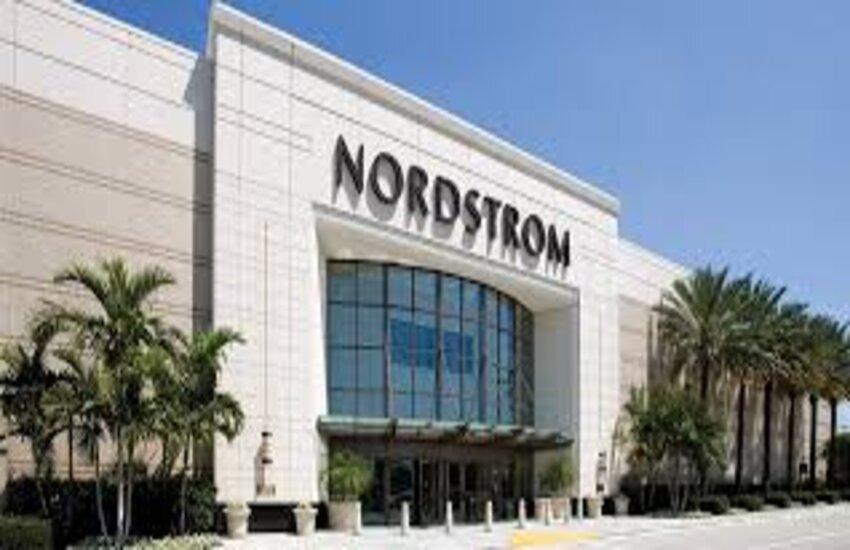Nordstrom (NYSE:JWN), a key player in the department store industry, has made headlines with its founding family's offer to take the company private. Valued at around $3.76 billion, the offer is priced at $23 per share, and it involves support from Mexican retailer El Puerto de Liverpool. Despite the hurdles facing the retail sector, Nordstrom has outshone competitors like Macy’s and Kohl’s in recent financial results by maintaining solid sales and a focus on trendy merchandise. However, this move to take the company private brings up several questions about the company's future. Let us take a closer look at Nordstrom’s business and evaluate the various factors that could have led to the company receiving the buyout offer.
Nordstrom – Business Overview
Nordstrom, Inc. is a fashion retailer that sells clothing, footwear, beauty products, accessories, and home items for women, men, young adults, and children. The company provides a mix of branded and private-label products through several platforms, including its Nordstrom stores, Nordstrom Rack locations, Nordstrom Locals, and online via Nordstrom.com, Nordstrom.ca, ASOS, and Nordstromrack.com, as well as through its mobile app. It also operates clearance stores under the Last Chance brand.
Brand Differentiation
At the core of Nordstrom's success is its customer-centric business model, which sets it apart from many competitors. The company’s focus on providing an exceptional shopping experience has helped it maintain strong sales even in a tough retail climate. Nordstrom’s investment in personalized services, loyalty programs, and a wide range of product offerings has attracted a broad customer base.
While Nordstrom’s ability to sell at regular prices, despite the rise of discount competitors, highlights the strength of its brand, maintaining this differentiation requires substantial investment. Going private could allow Nordstrom to continue its investment in customer-centric strategies without the pressure to meet short-term financial targets. The founding family may see this as an opportunity to build long-term customer loyalty and further strengthen the brand's competitive edge.
Efforts Towards Digital & Operational Transformation
Nordstrom's significant push into digital innovation is another factor motivating the founding family's decision to go private. As the retail industry shifts towards e-commerce, the company has poured resources into digital platforms to streamline the customer experience and cut costs. The benefits extend beyond just online operations; technological advancements in-store, such as RFID technology, have improved inventory accuracy and minimized shrinkage, contributing to Nordstrom’s bottom line.
The company's commitment to blending retail with cutting-edge technology has resulted in faster merchandise turnover and fresher stock, both of which are essential to customer satisfaction. As Nordstrom continues to explore innovations like data analytics and even generative AI, the founding family may see an opportunity to accelerate these changes without being burdened by the expectations of public shareholders. By going private, Nordstrom could focus on long-term technological advancements and operational improvements that position the company to compete in an increasingly digital world.
Approach To Inventory Management
One of the driving forces behind the founding family's decision is Nordstrom’s effective approach to managing inventory. This strategy has played a vital role in keeping sales strong and operations efficient. By carefully aligning inventory with actual sales demand, Nordstrom has ensured that its Full-Price and Off-Price segments remain stocked with high-quality, appealing products. The Rack business, which has seen some over-inventory, has benefited from this strategy, particularly as it supports both new store openings and the Rack.com expansion.
This approach allows the company to maintain momentum, offering fresh products to customers while avoiding the trap of excessive markdowns that eat into profit margins. In a retail world where excess inventory can lead to financial struggles, Nordstrom's careful management of its product turnover sets it apart. However, such a strategy requires precision in execution, and the founding family may believe that going private would enable them to continue these practices without the short-term pressures of the public market.
Strategy Related To Capital Allocation
Another key factor influencing the family’s decision is Nordstrom's disciplined financial management. Despite challenges within the retail sector, the company has maintained a solid balance sheet, which has helped it weather difficult market conditions. Nordstrom has focused on high-return investments that enhance the customer experience while also managing debt and returning value to shareholders through dividends.
However, the limitations of the public market can restrict strategic capital allocation. Quarterly earnings expectations often force companies to prioritize short-term gains over long-term growth. By taking Nordstrom private, the founding family could gain the flexibility to make bold, long-term investments, such as further enhancing digital platforms and improving store experiences. This approach raises questions about how the company will manage its financials in a private setting, but it could provide the necessary freedom to focus on transformative initiatives.
Final Thoughts

Source: Yahoo Finance
As we can see above, Nordstrom's founding family's offer to take the company private, is only marginally above the prevailing market price of the company’s stock and includes only a 40 cent premium implying there isn’t much in the deal for M&A arbitrageurs. The company is trading at an LTM EV/ Revenue multiple of 0.49x and an LTM EV/ EBITDA of 6.33x implying that there is scope for some additional premium as well in case other bidders swoop in, who tend to see more value in acquiring Nordstrom. We believe that Nordstrom's current position presents investors with mixed signals. On one side, the company is riding high on strong retail performance and operational efficiency, while on the other side, it faces challenges posed by a fast-evolving retail landscape. From digital transformation to managing inventory and meeting shifting customer expectations, the company is navigating a tricky environment. The founding family's desire to go private suggests they see opportunities in removing the pressures of quarterly earnings and shareholder scrutiny, allowing for a more strategic focus. Overall, the company presents a compelling case study in the world of M&A and it would be interesting to see whether the Nordstrom management accepts the offer or tries to get a better deal.













